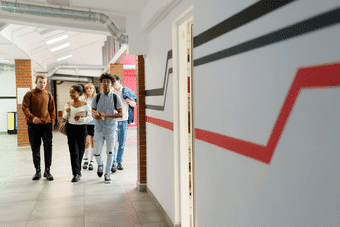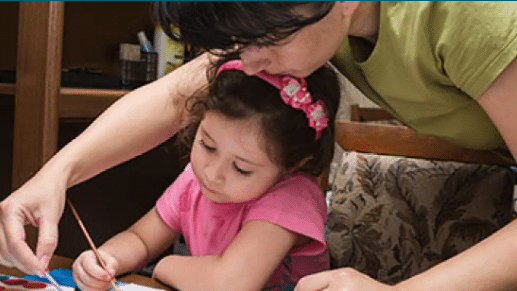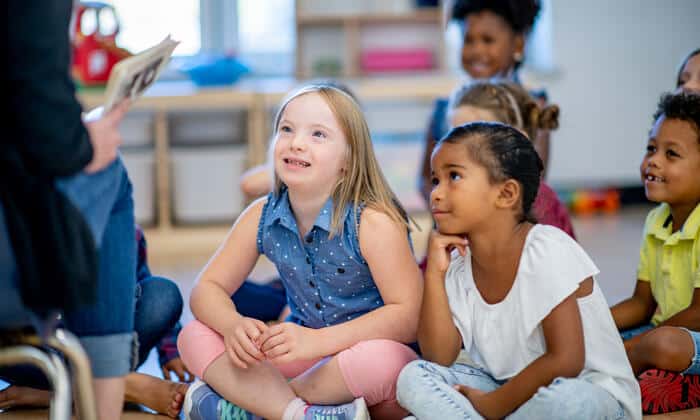social & emotional learning - InFORMING
Learning Playlists > Social & Emotional Learning – Informing
The positive impact of Social and Emotional Learning (SEL) is substantiated by extensive research, demonstrating that an educational framework emphasizing SEL results in favorable outcomes for students, educators, and the wider school community. Numerous independent studies across diverse disciplines confirm that SEL leads to advantageous outcomes in areas such as social and emotional skills, academic achievement, psychological well-being, positive health behaviors, school environment and safety, and long-term life outcomes (Collaborative for Academic, Social, and Emotional Learning).
Prioritizing the SEL requirements of educational institutions is crucial for cultivating environments where all students can flourish. The following resources are recommended for schools and districts embarking on the SEL Pillar. Those exploring SEL implementation may find themselves contemplating initial steps. These resources focus on SEL Instruction and Modeling, which are fundamental components of school or district-wide SEL implementation.
Schools or districts are prepared for the “informing” phase of the Social and Emotional Learning Pillar when they have begun SEL implementation, have organized an SEL team to lead the work, and are ready to dive deeper. The informing phase is often characterized by a deeper understanding of SEL integration; utilizing student, family and community voice; and expanding the overall definition of Social and Emotional Learning to include both adults and students. Click here for our Action Planning Guide to help you through the process of creating an action plan that will help your school move towards becoming a more resilience-supportive school community.
- School-based Staff Survey on Schoolwide SEL Implementation (assessment)

- 10 minutes
CASEL’s surveys is used to gain a better understanding staff experiences and perceptions of social emotional learning (SEL). Through this survey, schools can learn more about the day-to-day SEL practices and solicit thoughts and ideas about them.
You can take the CASEL survey on the RSSI site at www.rss-illinois.net.
Click here for the Assessment Guide to help your team through this process.
For more information and to download a copy of this survey, go to the CASEL site School-based Staff Survey on Schoolwide SEL Implementation

- 30 minutes
This course provides simple strategies can increase students’ sense of safety and belonging. The information in this course can be applied to afterschool and out-of-school environments as well. Use in grade-level meetings or all-staff professional development days to foster additional learning and discussion.

Safe and supportive school communities foster students’ social, emotional, and academic needs. Educators want actionable strategies and practices to ensure that all students can access equitable learning environments. Creating Safe, Equitable, Engaging Schools is a book from American Institutes of Research that is available online. It helps school leaders make sense of the various evidence-based resources and frameworks designed to support the whole child. Addressing critical topics like restorative practices, cultural responsiveness, social and emotional learning, and family engagement, this volume offers insights on how leaders can leverage school-based teams to assess student needs and select appropriate interventions.
- extended reading

“Transformative SEL” is a form of SEL implementation where young people and adults build strong, respectful, and lasting relationships to engage in co-learning. It facilitates critical examination of individual and contextual factors that contribute to inequities and collaborative solutions that lead to personal, community, and societal well-being. Through SEL, students and adults develop social and emotional skills needed for school and community engagement, with a focus on rights and responsibilities for creating learning environments that are caring and just.
- 60 mins
- Fostering Belonging, Transforming Schools: The Impact of Restorative Practices (Research report)

This study from the Learning Policy Institute is unique in its focus on the effects of practices rather than programs, the range of student outcomes it examines, and its scale. It examines the effects of restorative practices on academic, disciplinary, behavioral, and health outcomes by combining data regarding the practices in place in 485 middle schools with detailed school attendance and student outcome data for approximately 2 million middle school students. It tracks student exposure to these practices over time and analyzes how exposure to restorative practices affects outcomes at the individual and school levels, controlling for student and school characteristics. Read the research findings such as how exposure to restorative practices improved students’ academic achievement and reduced suspension rates and duration.
- 60 mins
- Developing Culturally Responsive Relationships with Your Students (blog)

This blog explores the importance of developing culturally responsive relationships with students. Culturally responsive teaching focuses on practitioners being culturally competent in order to authentically instruct students. It is important to build relationships through understanding. misunderstood.
Developing Culturally Responsive Relationships with Your Students – Social Studies
- 4 mins
- Calm Down Corner (article)

One way to help children learn how to self-regulate is by providing them with calm down corners. A calm down corner is a designated space in a home or classroom with the sole intent of being a safe space for a child to go to when they feel their emotions are running too high and they need to regain their emotional and physical control. Gain some tips for creating a calm down corner in this short article.
- 5 mins
- Talking Circles: for Restorative Justice and Beyond (article)

- 5 mins
As more schools consider restorative practice in areas of discipline, Talking Circles, a core component of the restorative justice process, enter the conversation. A Talking Circle, sometimes called a Peacemaking Circle, uses a structural framework to build relationships and to address conflict within a community. But Talking Circles serve other purposes as well: They create safe spaces, build connections and offer teachers a unique means of formative assessment.
Talking Circles: For Restorative Justice and Beyond | Learning for Justice
- Applying Universal Design for Learning Supports Inclusive Education (article)

Ensuring education is inclusive of young people with diverse needs and abilities takes intentional practice; UDL can help educators design experiences that benefit all students. This article provides some introductory examples of UDL practices that can be used in a variety of settings. This is not an exhaustive list but rather a starting point, because there is so much more we can do to design learning experiences that are more inclusive and equitable.
Applying Universal Design for Learning (UDL) Supports Inclusive Education | Learning for Justice
- 10 mins
- A Family Engagement Framework for All (article and video)

This article provides an overview of how educators across every role can use Mapp’s newly revised family engagement model — the Dual Capacity-Building Framework for Family-School Partnerships — to guide their relationships with families.
Watch the 5-mintue video about the Dual Capacity-Building Framework to learn how leaders can use family engagement plans in their schools and districts.
Click here to learn more: A Family Engagement Framework for All | Harvard Graduate School of Education
- 10 mins
- Classroom WISE: Well-Being Information and Strategies for Educators (training webinars and guides)

Classroom WISE is a 3-part training package that includes a free self-paced online course, video library featuring practicing teachers and students, comprehensive resource collection and website for K-12 educators on mental health literacy. The Classroom WISE online course begins with a brief introduction video on why this work is important and why teachers matter in supporting the well-being of students. The course then proceeds with six modules covering the following: promoting the mental health and well-being of students, and understanding and supporting students experiencing adversity and distress.
- extended viewing
